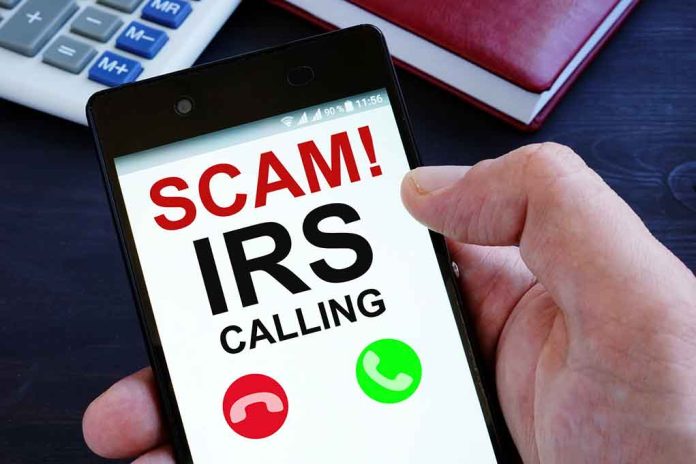
IRS Scams Are On The Rise – Here’s How To Spot Them
(DailyDig.com) – Tax season is coming, and with it tax scam season. Every year, thousands of people lose millions of dollars and their personal information when they fall for a tax scam. Many of these scams target older people who might be more likely to fall for them.
Here are some of the most common tax scams:
IRS Imposter Scams
This is when somebody contacts a person claiming to work for the IRS. Most of these scams take place by phone, but email and text is also known, as are physical letters.
The most common is the tax collection scam, where the thief calls claiming the victim owes taxes and must pay them immediately, sometimes under threat of arrest. Often they require the amount to be paid via wire transfer or prepaid debit card. The IRS will never require that you pay an overdue amount immediately, or by a specific method. They may also claim they can revoke your professional license and/or immigration status. They can’t.
The other common one is an email or text message claiming the IRS needs to verify certain personal information. The IRS never does this.
One rule to remember is that the IRS never calls first about unpaid taxes. They always send a letter before calling or visiting. These can be faked too, but it’s a lot less common. If somebody receives a letter, they should research a number to call to check on it rather than calling the number on the letter. It’s safe to hang up on these calls, but if concerned, ask for the caller’s name, badge number, and callback number. Then call 1-800-366-4484, they can tell callers if it’s a real IRS caller. It might be…you might not have received the notice for some reason. If you are being audited, then an unannounced call or visit is possible, but you will know you are being audited.
The IRS does not use email, text messages, or social media to contact you.
Tax ID Theft
This is when somebody gets hold of a social security number and files taxes as that person. The goal is to fraudulently claim a tax refund. The victim often doesn’t find out until they try to file their taxes or the IRS tells them through something called a 5071C letter.
The best way to avoid tax ID theft is to file your taxes as soon as you have all of your documentation. That minimizes the window a thief has to file as you.
People who get a 5071C letter will also be issued an identification protection PIN that you use to file your return. If particularly concerned about ID theft (say they have had other identity theft), they can request one.
Tax Transcript Email Scam
A tax transcript is a summary of a tax return. This is used to apply for a loan or certain government assistance. Scammers will send an email with an attachment that purports to be a tax transcript. When opened, it infects the computer and local network with malware (typically Emotet, which steals personal and business information).
Offer in Compromise Mills
People who owe back taxes can typically work with the IRS to get a payment plan put together. OIC mills make outlandish claims about settling tax debt easily and cheaply.
The scam here, of course, is that they aren’t going to get a better deal than a taxpayer can get on their own, whilst pocketing a fee. People who owe more than they can pay in taxes should talk to the IRS directly. They have mechanisms to help taxpayers. If they can’t do it on their own, they should contact a reputable tax practitioner.
The scammers may also tell people they are eligible for an OIC when they are not, pocket their money, and get them nothing at all.
This tax season, taxpayers need to be careful to avoid common IRS scams that can steal their money and/or personal information. Remember that the IRS always sends a letter about overdue taxes before calling.
Copyright 2022, DailyDig.com













